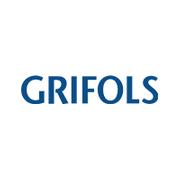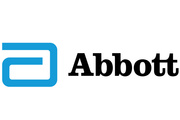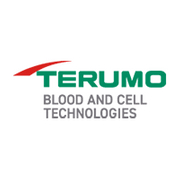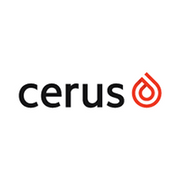CME Workshop on Therapeutic Apheresis and Cellular Therapy Chandigarh, India, 2022 October
A ‘CME cum Workshop on Therapeutic Apheresis and Cellular Therapy’ based on the theme – ‘Expanding Horizons of Therapeutic Apheresis and Cellular Therapy’ was organized by the Department of Transfusion Medicine, PGIMER, Chandigarh on 15th & 16th October, 2022, in collaboration with The International Society of Blood Transfusion, (ISBT) at Lecture Theatre-1, Nehru Hospital, PGIMER, Chandigarh and it was conducted in a hybrid mode (Physical as well as Virtual).
The CME on 16th October 2022 was inaugurated by Vivek Lal, Director, PGIMER, Chandigarh, the Chief Guest for the event. In his inaugural address, the Director highlighted the role of Therapeutic plasma exchange (TPE) in various neurological disorders and certain other clinical conditions in improving the patient outcomes. He also shared his experiences regarding the challenges for beginning the TPE programme at this institute. He also discussed how the approach evolved over the years for neurological patients requiring TPE. He encouraged the transfusion medicine specialities to work together with the clinicians as a ‘team’ for better patients care. Anil Kumar, Additional Deputy Director General of Health Services, Ministry of Health & Family Welfare, Govt. of India, New Delhi was the Guest of Honour for the programme, and he also released the ‘E-Souvenir’ on the occasion. In his address, he highlighted the role of ‘e-Raktkosh’ portal in integrating the transfusion services across the country. He also emphasized the role of coordination between transfusion services and clinicians for establishing a successful therapeutic apheresis programme. Jenny White, Executive Director, International Society of Blood Transfusion (ISBT), Amsterdam, The Netherlands highlighted the ISBT education initiatives and resources to improve transfusion safety across the globe. N.K. Mehra, Former Dean Research, AIIMS, New Delhi discussed about the guidelines for stem cell research in India and stressed the need for strong regulatory framework for research and clinical therapy on stem cells. David Stroncek, Medical Director at NIH, Bethesda, Maryland, U.S.A delivered a talked-on CART–T cell Therapy–Manufacturing and clinical application and shown that how this therapy has changed the clinical practice for leukemic disorders. David Mckenna, Department of Lab Medicine and Cellular Therapy, Minnesota, U.S.A discussed about mesenchymal stem cell manufacturing and its clinical applications over the last two decades and its promising future. R.K. Chaudhary, Head, Department of Transfusion Medicine, SGPGIMS, Lucknow, India discussed at length the basics of developing apheresis guidelines and how they evolved over time. M.V. Padma Srivastava, Head, Department of Neurology, AIIMS, New Delhi discussed the role of therapeutic plasma exchange in neurological disorders and shared her experience that how plex can change the course of certain neurological conditions. Ratti Ram Sharma, Head, Department of Transfusion Medicine, PGIMER, Chandigarh highlighted the role of transfusion medicine specialist in performing therapeutic plasma exchange and shared the experience over last decade with encouraging response in various clinical disorders. Raja Ramachandran, Associate Professor, Department of Nephrology, PGIMER, Chandigarh, shared the clinical perspective about the role of therapeutic plasma exchange and Aseem Kumar Tiwari, Associate Director and In-charge, Department of Transfusion Medicine, Medanta the Medicity Hospital, Gurugram highlighted the Transfusion specialist perspective for performing the Therapeutic Plasma Exchange in renal disorders and shared their experience on successful ABO Incompatible renal transplant at their institute. Sunil Taneja, Associate Professor, Department of Hepatology, PGIMER, Chandigarh discussed the clinical decision making in instituting Therapeutic Plasma Exchange in liver disorders and Meenu Bajpai, Professor, Department of Transfusion Medicine, Institute of liver & Biliary Science (ILBS), New Delhi shared her experience of Plasma exchange procedures in variety of liver disorders highlighted the role of Transfusion specialists in this import therapeutic treatment modality.
The workshop on 15th October 2022 was academically rewarding with highly interactive sessions. Vijay Kumawat, Associate Professor, Department of Transfusion Medicine & Haematology, NIMHANS, Bengaluru discussed about the basic principles of therapeutic plasma exchange. Archana Bajpai, Additional Professor, Department of Transfusion Medicine & Blood Bank, AIIMS, Jodhpur enumerated about the basic format of ASFA guidelines. Rekha Hans, Associate Professor, Department of Transfusion Medicine, PGIMER, Chandigarh highlighted the requirements for patient preparation and stem cell harvesting. Divjot Singh Lamba, Associate Professor, Dept. of Transfusion Medicine, PGIMER, Chandigarh discussed about the quality control, processing, and cryopreservation of stem cells. Satya Prakash, Assistant Professor, Transfusion Medicine, All India Institute of Medical Sciences, Bhubaneswar talked about the management of adverse events during apheresis. Aikaj Jindal, Consultant and Head of Department, Transfusion Medicine, SPS Hospitals, Ludhiana, Punjab discussed about the Role of Apheresis Technologist / Nursing Officer. Satyam Arora, Associate Professor, Department of Transfusion Medicine, Post Graduate Institute of Child Health(PGICH), Noida, UP, moderated the session dedicated to demonstration of the procedures where Kshitija Mittal, MD (Transfusion Medicine), Assistant Professor, Department of Transfusion Medicine, Government Medical College and Hospital, Chandigarh highlighted the key elements of therapeutic plasma exchange, Gopal Patidar, Associate Professor, Department of Transfusion Medicine, All India Institute of Medical Sciences, New Delhi discussed the role Adsorption columns in treating various clinical conditions and the technical aspects to the procedure.
Twenty-Five scientific abstracts were submitted by transfusion medicine researchers from different parts of the country and seven best papers were presented as oral presentation and the reaming abstracts were presented as posters by the authors.
Around 208 delegates (140 in person & 66 online) from various parts of the country participated in this academic feast and it was well received by both the transfusion medicine experts and the clinicians. These deliberations will certainly go a long way in further broadening the scope of therapeutic apheresis in various clinical conditions.
The CME-cum-Workshop ended with concluding remarks by Ratti Ram Sharma, Prof. and Head, Department of Transfusion Medicine, PGIMER, Chandigarh where he highlighted the importance of therapeutic apheresis in various clinical conditions for improving patient outcomes and the emerging role of cellular therapy and its clinical applications and thanked all the guest faculty and expressed special gratitude to ISBT for supporting this event.
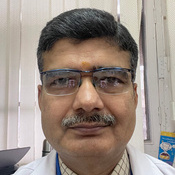
Ratti Ram Sharma
Ratti Ram Sharma (MD) is currently Head of the Department of Transfusion Medicine at Postgraduate Institute of Medical Education and Research,Chandigarh, India. He has been working in the specialty for last 25 years and has keen interest in Apheresis, Stem Cell biology, blood component quality control and clinical transfusion practice. He has been instrumental in developing the curriculum for M.D. Transfusion Medicine programme in the Institute and established an active therapeutic apheresis and Bone Marrow processing unit in the department and received “Advancing apheresis technology runner-up award” from Terumo Caridian BCT, USA in 2014. Has been recipient of prestigious JR Jolly (2014) & H.D. Shourie (2008) awards of the Indian Society of Blood Transfusion and Immunohematology for his scientific research & innovative ideas in the field of Transfusion Medicine. Certificate of distinction from the University of Minnesota as a special research fellow in the Department of Pathology & Laboratory Medicine, USA for his active participation in academic & research activities. He is the Member of WHO Advisory group on Blood safety. He is the Member of National blood safety and hemovigilance programme implementation working groups. He has more than 100 publications both in National and International Journals.






